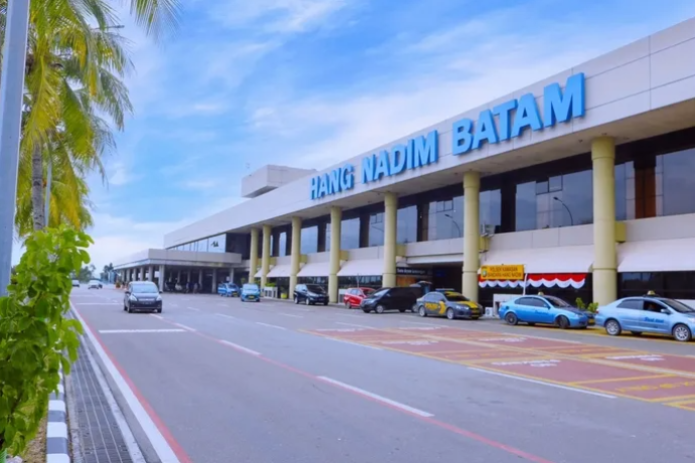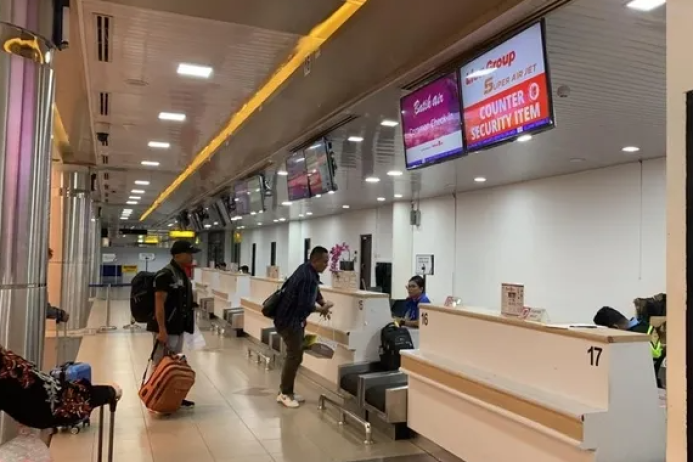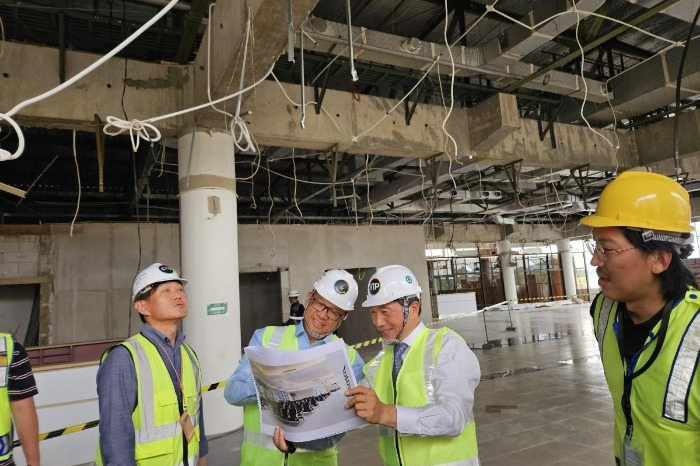Infrastructure
S.Korea to develop Batam airport as Indonesia's air hub
State-run Incheon Airport spurs expansion of Hang Nadim International Airport, aiming to increase passengers sixfold by 2047
By Nov 23, 2023 (Gmt+09:00)
3
Min read
Most Read
LG Chem to sell water filter business to Glenwood PE for $692 million


KT&G eyes overseas M&A after rejecting activist fund's offer


Kyobo Life poised to buy Japan’s SBI Group-owned savings bank


StockX in merger talks with Naver’s online reseller Kream


Meritz backs half of ex-manager’s $210 mn hedge fund



BATAM – State-run Incheon International Airport Corp. (IIAC) is accelerating the growth of Hang Nadim International Airport in Batam, Indonesia’s No. 3 tourist destination, in an effort to diversify the South Korean airport operator’s business portfolio.
IIAC said on Wednesday PT Bandara International Batam (BIB), its joint venture that develops and operates the Indonesian airport, will increase its operating profit to 6 billion won ($4.6 million) this year from 300 million won last year.
BIB is expanding, renovating and operating the airport with 600 billion won in investment earmarked over the 2022-2047 period. IIAC holds a 30% stake in the JV, while Indonesia’s state-run airport operator Angakasa Pura I (API) and government-backed construction firm PT Wijaya Karya Tbk (WIKA) own 51% and 19%, respectively.
IIAC jointly founded the JV in December 2021 after winning a bid to develop and operate the Indonesian airport. The wholly owned company of the Korean government beat competitors like Zurich Airport of Switzerland, EGIS of France and GMR of India in March 2021.

GROWTH POTENTIAL
This is the first time for a Korean airport operator to develop and run the businesses of an airport abroad. The JV is conducted via a public-private partnership (PPP), in which government agencies and private sector companies together finance, construct and operate the project.
IIAC expects Batam will become one of the top golf tourism destinations in Southeast Asia and attract budget travelers in the region. The city, only 27 kilometers away from Singapore, is one of the most-visited destinations in the country following Jakarta and Bali.
Based on its strong regional network, IIAC will develop the airport in Batam as a major gateway connecting Northeast Asia and Indonesia during the contract period.
IIAC forecasts the Indonesian airport’s number of passengers will rise 15% on-year to 4 million this year, recovering to more than 90% of the pre-pandemic level. The Korean company aims to increase the number of passengers to 25 million by 2047 and achieve 6.4 trillion won in revenue with 480 billion won in dividends from the airport project during the 25-year contract period.

SHORT-TERM PLANS
The airport in Batam now operates only two routes, one to Malaysia and one to Saudi Arabia. IIAC is planning to increase the routes to five or more by next year, setting up flights to South Korea, China, Thailand and others.
“Indonesia’s Lion Air will launch a charter route early next year and scheduled flights in the following October for the Incheon-Batam route. We aim to receive the first dividend in six to seven years,” said BIB Vice CEO Chun Min-jae.
Private firms in Korea will also join the long-term project.
HDC Shilla Duty Free Ltd., which runs duty free shops in Singapore Changi Airport, Hong Kong International Airport and Macau International Airport, will launch operations in the Indonesian airport in March 2024.
Small-to-mid-sized firms Keunjeong Architects & Engineers and Dohwa Engineering will participate in the design of the airport, while Mooyoung Architects & Engineers will supervise its construction.
IIAC is seeking business diversification via global airport operations as the Korean company was hit hard during the COVID-19 pandemic and severe acute respiratory syndrome (SARS) outbreaks.
The state-owned firm will raise the number of overseas airports under its operation to 10 or more by 2030, CEO Lee Hak-jae said on Wednesday.
The company is preparing consulting business bids for airports in Manila, Davao and Dumaguete in the Philippines.
Write to Jun-Wan Kang at jeffkang@hankyung.com
Jihyun Kim edited this article.
More to Read
-
 AirlinesKorean LCCs baffled as Korea-Indonesia aviation talks stall
AirlinesKorean LCCs baffled as Korea-Indonesia aviation talks stallNov 22, 2023 (Gmt+09:00)
1 Min read -

-
 Business & PoliticsS.Korea, Indonesia to bolster high-tech partnership
Business & PoliticsS.Korea, Indonesia to bolster high-tech partnershipSep 10, 2023 (Gmt+09:00)
3 Min read -
 Prolonged pandemicIncheon Int'l Airport raises $300 mn in first global bond sale
Prolonged pandemicIncheon Int'l Airport raises $300 mn in first global bond saleApr 27, 2021 (Gmt+09:00)
1 Min read
Comment 0
LOG IN


